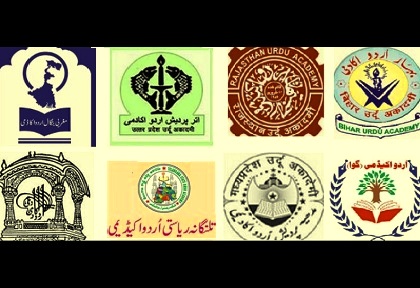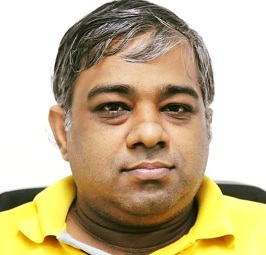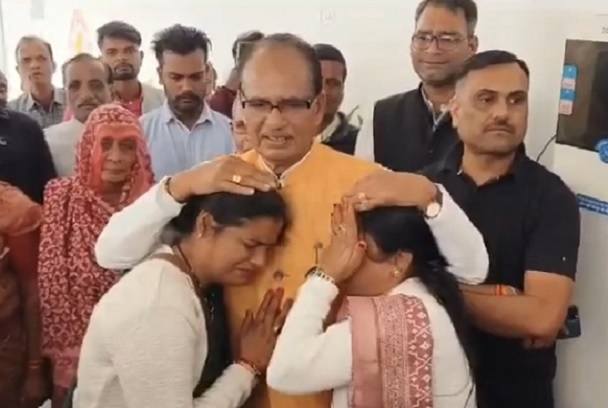Role of Urdu Academies in safeguarding Urdu: Language needs as much attention as literature

Shams Ur Rehman Alavi
NewsBits.in
BHOPAL: Urdu Academies are government bodies and their task is to promote Urdu language and literature.
Naturally, language comes first and if the rights of the language are safeguarded, then literature too will have readers as well as future. But surprisingly, most of the academies' energy is spent in holding literary events and the focus is less on how many students and youngsters are getting connected to the language.
Even the most basic aspect --if students in English and Hindi or regional language schools, are being provided the option to have Urdu as a third language? This gets negelcted. Often, students are made to chose Sanskrit or default regional language in schools that include prominent Convent or public schools.
This is just because of lack of initiative. However, Urdu Academies that are government bodies seldom focus on this important aspect. It is not about Urdu medium students, rather, the basic right of a student to have his mother tongue as 'third language' in the private schools of the capital or major city (cities).
The office-bearers of Urdu Academies must realise that their basic job is promotion of the 'language'. That, they are government bodies, can correspond with schools if the third language option [along with Sanskrit or a regional language] is not being made available in schools, and can seek explanation too.
Further, they can write on letterhead, release the letter and also share it with local media, especially, if certain prominent schools are not letting students choose Urdu option. When this comes in public, there is pressure on schools to clear the air. There are numerous ways at doing things.
You can use connections of pro-Urdu personalities, organise seminars, invite principals of leading public schools and felicitate them and through such good gestures, establish relation, urge them to ensure that Urdu option along with Sanskrit. If you don't expand the scope of your work, it will be further limited in the years to come.
Steps are needed in this direction through proper coordination just like tying with education departments for updating syllabus or publication of Urdu texts in certain states. Also, making 'Urdu friends' or 'Urdu mitr' scheme in districts and holding them responsible for certain tasks was an idea that could have been replicated elsewhere. Otherwise, Academies programmes remain in capitals, and other districts, cities remain untouched.
It's not just Ghazal, Nazm or Afsana that need Academies' attention. If language and script remain, readers will remain and then Urdu will also prosper. Unfortunately, several Academy officials have less interest on this count, though this is basic. Clout of Urdu lovers, intellectuals, poets, writers, bureaucrats who have influence in society can be used.
JUST MUSHAIRAS, ANNUAL AWARDS AND LITERARY GATHERINGS
There are many ways but sadly, my personal experience is that most Academy officials avoid initiative. Besides, they are content with publishing a few literary books--mostly poetry collections, giving away annual awards or holding 'sham-e-afsana', rather than focusing on important aspects like setting up Urdu centres or reading rooms, libraries with public participation.
When you don't act, stop wielding your powers, forget your official status or stop exercising them, the result is that the institution become redundant over a period. In the past, certain passionate people organised events for kids apart from essay and poetry contests for children, debates and writing skills, calligraphy and bait-baazi, not just for authors, elders and poets.
There are more than 15 Urdu academies apart from a few other institutions that are supposed to work for 'language' but they keep themselves limited to holding literary activities. I am not at all against mushairas or other cultural gatherings. What I am saying that you should realise that your primary duty is to ensure that the language is promoted, the basic rights of the Urdu speaker are safeguarded.
Anjuman Taraqqi Urdu Hind too has branches in States. And, if it's branches are not doing the right work, they can be revived or other similar organisation can be set up, at least, at regional level in the states or capitals, major cities. Also, there is a pan-Indian body like NCPUL.
All such Urdu institutions in the country have a duty to ensure that active people are brought together to ensure that critical issues are dealt with, efforts are made and action taken when schools are not letting the option or removing Urdu as subject. It needs constant attention.
NOTE: The states that have Urdu Acadmies include Maharashtra, Karnataka, Goa, Odisha, Telangana, Andhra, Madhya Pradesh, Rajasthan, Bihar, Uttar Pradesh, Delhi, Haryana, Punjab, Chhattisgarh,West Bengal. Also, there is an academy in Tamil Nadu and there was a beginning in Uttarakhand too, at least, building was earmarked and some other provisions were made. Jharkhand remains one of the prominent states that does not have a Urdu Academy.










